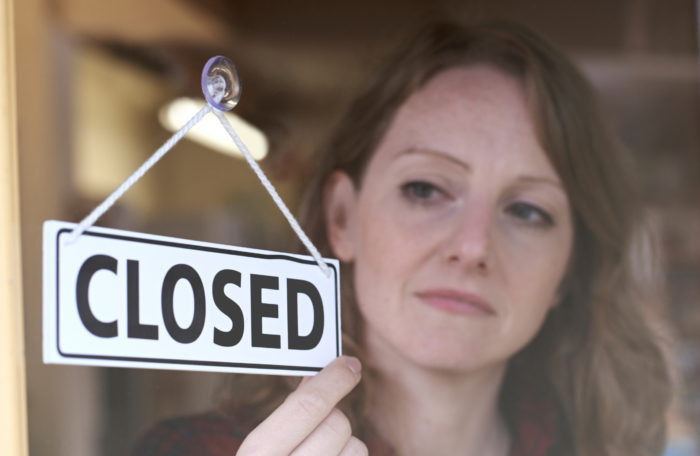To reopen the economy, ditch the ‘essential’ vs. ‘non-essential’ framework
Addressing the first meeting of the Governor’s Economic Re-Opening Task Force, Gov. Chris Sununu said the state likely faced a gradual reopening over many months, not a quick lifting of restrictions within a few weeks.
The task force’s job, then, is to craft a strategy that would “allow us to continually manage through the process as opposed to closing everything down and rewriting the playbook” if Covid-19 infections surge again in the fall or winter, the governor said.
Throughout the meeting, members discussed how to include all of New Hampshire’s industries. Two members stressed the importance of the arts to New Hampshire’s economy. The pressure on members to get certain industries listed as “essential” was obvious.
Since the governor’s March 17 order that divided state businesses into “essential” and “non-essential” categories, people in industries categorized as “non-essential” have pressed hard to have their businesses recategorized. And who can blame them? For many, a forced closure for even a few more weeks, not to mention 18 months, is an economic death sentence.
It’s become clear that the “essential” vs. “non-essential” framework is deeply flawed. Adopted by governors nationwide, it’s a better fit for wartime production circa the 1940s. The effort to suppress the spread of the coronavirus does not fit that model very well.
The government isn’t forcibly converting the private sector to war-time production for the obvious reason that surviving a global pandemic does’t require quite the same sort of government direction and mobilization that defeating an enemy nation does.
The task is not to turn our economy over to government control. It is to slow the spread of a virus. To do that, it isn’t necessary for the state to dictate which industries get to stay open. It’s necessary for people to behave in ways that minimize the spread of a virus.
Anyone who’s shopped in the last month can see the problems with the current model. Grocers, classified as “essential,” sometimes implement responsible protocols and sometimes don’t. Grocery clerks are a top infected group, showing that safety practices are not always followed as rigorously as they might be.
Artists and many small retailers, on the other hand, are forced to keep their doors closed even if they can responsibly clean their facilities and implement effective safety protocols.
A safe practices model that emphasizes behavior rather than industrial classifications is a better fit.
Our counterparts at the Beacon Center of Tennessee have recommended that “any businesses that can maintain public health and safety guidelines should be allowed to open.”
That’s a much better framework to guide the reopening process. And it’s based on existing regulatory practices.
Restaurants and hospitals, for example, have to meet lengthy checklists of health and safety standards. They are inspected, and if they meet the standards, they continue to operate.
Rather than having the governor dictate which industries can and can’t open, a safe practices model would encourage and reward responsible behavior, including the widespread adoption of rigorous safety protocols throughout the economy.
Setting safety standards for businesses to meet could open much more of the economy while creating powerful incentives for the more widespread adoption of safe practices.




Thank you!
I have not read about grocery store workers being one of the larger tranches of the confirmed cases, only about a worker at a Dover supermarket. One of the many things that makes the least sense to me is the treatment of our outdoor public spaces. Epidemiologists who champion the opening of society and disagree with lockdowns which for the first time in history quarantine the sick with the healthy, spreading disease in high concentrations in familial groups, have found no concrete cases of outdoor contagion. The super spreader events have been indoors, with close contact and loud voices of crying and singing (funerals, weddings, drunken festivals, and large business meetings with lots of face-to-face networking, and the close care of healthcare workers with the residents at long-term care facilities.) The safest places are outside where the breezes would disperse any viral shedding. The closing of trails, reservation system for others, beach closures, summer beach restrictions of no sitting (!!!!????!!!!), and the continued closure of playgrounds for children who are not vectors of COVID19 disease transmission are not based in any science that I can find nor has there been any explanation that has been given in NH news reports that is based on science of what is known of this disease.
The essential hubris which rationalized closing down in the first place, that of “I know better than you how to run your life”, is on full display with this committee.
By engaging in this “pretense of knowledge” the NH government is going to make this as painful, expensive, and destructive as possible, all the while complaining they couldn’t think of any way to accomplish even more death and destruction.
No one on that committee knows what I need to do to get back on my feet after this. Neither do I know what anyone on that committee needs to do, nor anyone of the 1.5 million people in this state. To assume they can “plan” other people’s lives is INSANE.
Lift the shutdown, abolish the restrictions, NOW. People will then choose what they need to do, and the time frame they need to do it in.
If a restaurant wants to offer seating at the “old” density, and you’re worried about social distancing, then DON’T EAT THERE.
Far, far too simple for these bloated bureaucrats to understand.